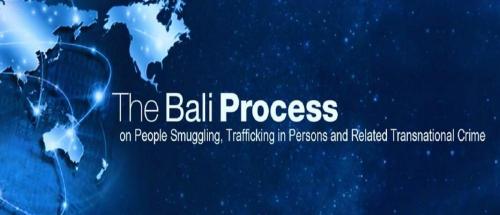
It is a forum for policy dialogue, information sharing and practical cooperation to help the region address these challenges. The Bali Process Strategy for Cooperation, including a forward work program of activities, guides the work of the Bali Process in implementing priorities directed by Ministers.
The Bali Process, co-chaired by Indonesia and Australia, has more than 48 members, including the United Nations High Commissioner for Refugees (UNHCR), the International Organization for Migration (IOM) and the United Nations Office of Drugs and Crime (UNODC), as well as a number of observer countries and international agencies. It also includes the Ad Hoc Group, bringing together those most-affected member countries, and relevant international organisations, to address specific people smuggling, trafficking in persons, and irregular migration issues in the region.
The Regional Support Office (RSO) of the Bali Process was also established to support and strengthen practical cooperation on refugee protection and international migration, including human trafficking and smuggling, and other components of migration management in the region.
At the Sixth Bali Process Ministerial Conference (March 2016), Ministers confirmed the core objectives and priorities of the Bali Process through the endorsement of the Bali Process Declaration on People Smuggling, Trafficking in Persons and Related Transnational Crime. The Declaration acknowledges the growing scale and complexity of irregular migration challenges both within and outside the Asia Pacific region and supports measures that would contribute to comprehensive long term strategies addressing the crimes of people smuggling and human trafficking as well as reducing migrant exploitation by expanding safe, legal and affordable migration pathways.










Add new comment